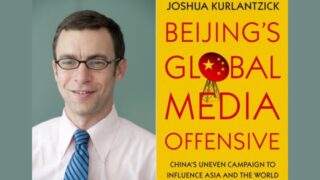The plan to “cleanse” the Internet and eliminate independent opinions and postings continues at full speed.
by Tan Liwei


Social media are controlled in China, but pieces of information not available elsewhere often appear there, although if they really disturb the CCP they are quickly removed.
President Xi Jinping has personally expressed his dissatisfaction with the fact that the Party’s control of cyberspace and social media is not total, and called for new and improved regulations.
Since 2021, these regulations and rules go under the name of “Operation QingLang.” The literal meaning of QingLang (清朗) is “cleansed and uncontaminated.” Originally, the program was presented as aimed at the “control of chaos” (乱象治理的通) in the cyberspace. It was explained that the “chaos” was mostly created by the fan groups of celebrities, where “fanaticism” was on display and inappropriate comments were published on a variety of items.
However, as new regulations are continuously produced, it appears that the “control of chaos” means that everything that is not strictly managed by the CCP is part of a “chaos” to be “cleansed” and suppressed. The case of the “chained mother of eight,” a woman who was found in chains in Jiangsu province, a victim of human trafficking, was the most commented news in social media in years, generated widespread criticism of the authorities, and probably confirmed to the CCP that its control on the Internet is not effective enough.
Two recent developments have attracted the attention and created serious concern among Chinese netizens.
The first is a short announcement by the authorities dated March 15, 2022. It reads that, “In response to the current serious network chaos on Douban, on March 15, the State Internet Information Office instructed the Beijing Internet Information Office to dispatch a work supervision team to station on Douban to urge rectification.”
This text and its importance may not be immediately understood by non-Chinese. They may not know that Douban is a social networking service with 200 million users. Netizens have known Douban as one of the spaces where control was comparatively less tight, and independent information might be posted, even if cautiously and not on all subjects. When Xi Jinping asked for more control of social networks and media, and launched a campaign against “chaos” there, he probably had Douban especially in mind. The statement that the service allows “network chaos” and needs urgent “rectification” does not bode well for the future of Douban’s comparative independence.
The other piece of news is that on March 9, Sheng Ronghua, deputy director of the Cyberspace Administration of China (CAC) organized a meeting at Sina Weibo to present the QingLang rules to be applied in 2022. Once he was at it, Sheng also summoned, in addition to Sina Weibo’s, executives of Tencent, Alibaba, Baidu, Kuaishou, Meituan, and Zhihu to attend the meeting, meaning he had there the main companies controlling social media, social networking, microblogging, online question-and-answer services, and online marketplaces in China.
The QingLang 2022 regulations, Sheng explained, consist of four major points.
The first ask that the companies “deepen their understanding’ of the QingLang campaign. They should “effectively improve the political position” and “fight a tough, protracted and overall battle” to make sure that all that is posted expresses loyalty to “the CCP and the Country.”
Second, the companies should assume and assign responsibility. If something disloyal to the CCP and the Country is posted, the Party wants to know who was responsible for it. “Each responsibility should be assigned to specific positions and personnel to ensure that all stages of work are carried out without compromise.”
Third, once the responsible personnel has been clearly identified, it should “control key sections such as topics, groups, and circles.” Further “chaos” will not be tolerated, meaning that posts should be “cleaned up” and if necessary edited or cancelled immediately.
Fourth, the companies should “strengthen security. It is necessary to continuously improve the community rules,” and also “improve the political commitment” of company executives. There should be CCP cells in each company office. The Internet companies should acknowledge “the political leading role of Party organizations,” and cooperate in case of “special operations”—an expression that echoes Russian aggression in Ukraine, called a “special military operation,” but presumably indicates actions to put an end to “chaos” on the Internet when it disturbs the CCP in a “special” way, as it is now happening with Douban.









